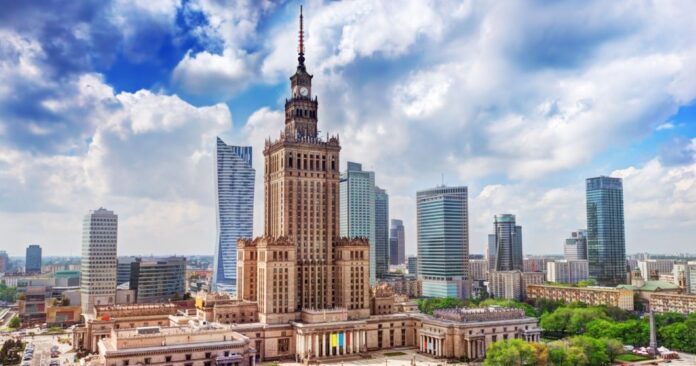Why does the earth rotate around the sun, and why are the world’s waters so blue? These pondering questions (plus many more) can be answered by science. Science helps people explain the world around them, from the beauty of the bioluminescent-glowing waters to the stunning dance of the Aurora Borealis. The world is full of beauty, prompting many travelers to pack their bags and explore it. While soaking in nature’s most beautiful sights, other travelers seek to travel in the name of science. For these travelers, they may find themselves in Europe, exploring museums dedicated to pursuing scientific discovery.
Step out of the lab and into a plane: these European destinations are perfect for science-loving travelers!
8 London, England
London is not only a top destination for attractions like the Tower of London and London’s beating heart; it’s a hub for all things science! When in London, visitors should check out the famed Natural History Museum and London’s Science Museum. To see the stars, head to the Royal Observatory. On the other hand, those interested in the medical sciences ought to visit the Old Operating Theatre Museum. This operating theatre is over 300 years old, giving tourists a grim reminder of what surgery was like during a time that lacked anesthesia!
THETRAVEL VIDEO OF THE DAY
7 Warsaw, Poland
Brilliant Polish talents like Nicolaus Copernicus (a mathematician and astronomer) and Marie Curie (a physicist known for her research in radioactivity) revolutionized the world with their dedication to discovery and science. Today, science-loving travelers can venture to places like Warsaw’s Copernicus Science Centre and the Marie Curie Museum to pay their respects to these brilliant minds. Simultaneously, tourists can expand their knowledge about the geology and visit the Earth Museum before heading to the Museum of Evolution to understand the progression of humankind over time.
6 Toulouse, France
Cite De L’Espace (or Space City) is Toulouse’s famous scientific discovery center that has welcomed 4 million visitors thus far (since 2012)! This tourist attraction features exhibits, activities, and displays related to space discovery. Learn about the fascinating life of astronauts and take a closer look at real-life treasures from space, including an actual sample of a moon rook. Suppose space isn’t a scientific topic of interest. In that case, visitors can still check out the Museum of Natural History (Muséum de Toulouse) or the History Museum of Medicine (Musée d’Histoire de la Médecine de Toulouse).
5 Amsterdam, The Netherlands
Thanks to its vibrant nightlife and rich history, the Netherlands remains a favorite destination for group and solo travelers. Besides checking out the Anne Frank House and the Van Gogh Museum, Amsterdam is home to science-themed attractions like the NEMO Science Museum to showcase the beauty of science (and technology). Amsterdam also has a pretty nifty attraction known as Micropia. This museum of microbes is the only museum of its kind, located in the heart of the Netherlands. This interactive and educational attraction showcases the fascinating life of microbes and their usefulness (and danger) to humankind.
4 Florence, Italy
Physics concepts like velocity, gravity, speed, and projectile motion would have never been possible without the scientific mind of Galileo Galilei, the world-famous Italian astronomer and mathematician. Travelers who want to appreciate the discoveries of this famous academic should make a trip to Florence’s Galileo Museum. During the summer, visitors may even get a chance to meet the man himself and learn more about his life! Besides the Galileo Museum, visitors can also check out the University of Florence’s Natural History Museum.
Alternatively, the Università deli Studi di Firenze (UNIFI) is also home to a fascinating anthropology and ethnology museum (including exhibits like Peruvian mummies!), a botanical garden, a herbarium, and a geology museum.
3 Valencia, Spain
Valencia is not only a lively port city with incredible views of the Mediterranean Sea; it’s home to several tourist attractions that highlight the beauty of the natural world. Make a stop at Valencia’s City of Arts & Sciences, an intricately designed “mini-city” or complexes of buildings dedicated to scientific discovery and culture. Of all of the complexes, be sure to stop by Oceanogràfic, Europe’s largest aquarium with 45,000 aquatic animals, or visit the interactive displays at the Science Museum. Finally, animal lovers may want to book some time at Bioparc Valencia, an incredible zoo that houses animals in replicas of their natural habitat!
2 Paris, France
Curious (or passionate) about scientific disciplines like anthropology, astronomy, technology, geology, microbiology, and much more? Paris is made not only for the pastry-loving traveler but also for tourists who can’t get enough of science. Learn about human evolution at Paris’ Musee de L’Homme or awe at a particle accelerator in the Palais de la Découverte. Finally, microbiology nerds may want to pay their respects at the Pasteur Museum, a museum dedicated to the 19th-century scientist renowned for his work on vaccines and microbes.
1 Geneva, Switzerland
Switzerland is not only the home to thrilling alpine roller coasters and scenic train rides. Geneva is the destination for travelers who love physics and the wacky world of science. Most notably, Geneva is home to the European Organization for Nuclear Research (otherwise known as CERN), the site of the Large Hadron Collider. Regarded as the largest particle accelerator in the world, this scientific marvel is in the basement. This means that while the Large Hadron Collider is usually off-limits to visitors, CERN offers public tours to see the first accelerator built in the facility. Also, with the tour, visitors can peruse CERN’s permanent exhibits that showcase the beauty of particles and the majesty of the universe.
Geneva is not only reserved for physics aficionados. This city is also blessed with a botanical garden (Jardin Botanique) for plant lovers and the Patek Philippe Museum for visitors that love the intricate craft of watch-making!










